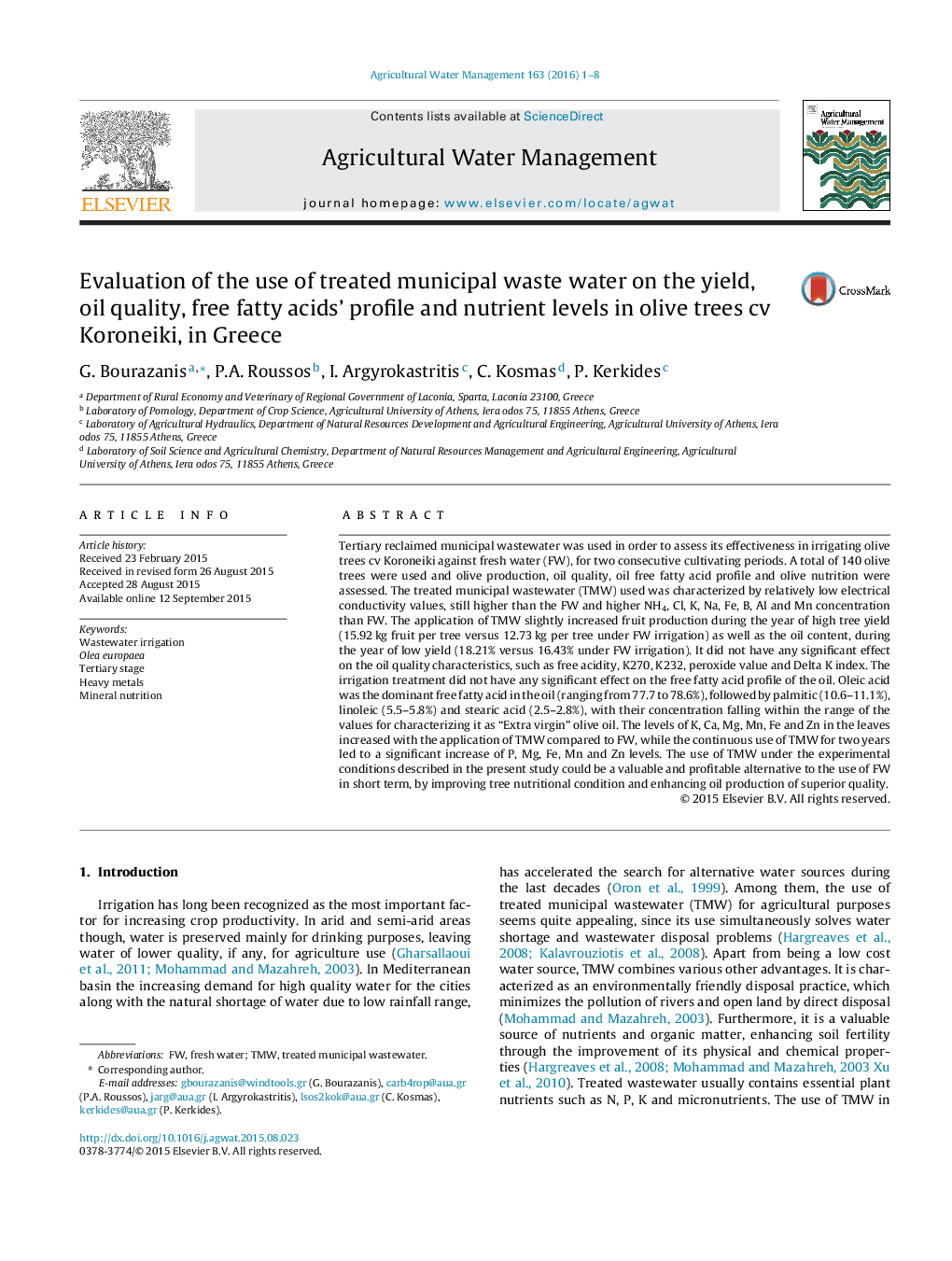| کد مقاله | کد نشریه | سال انتشار | مقاله انگلیسی | نسخه تمام متن |
|---|---|---|---|---|
| 4478331 | 1622916 | 2016 | 8 صفحه PDF | دانلود رایگان |
• Olive orchard (cv Koroneiki) was irrigated with either fresh water or treated municipal wastewater.
• Irrigation with treated waste water increased nutrient levels in the leaves at sufficiency levels.
• Neither of the treatments affected the “Extra virgin” quality of the oil.
• Olive yield was not affected by irrigation with treated wastewater.
• The fatty acid profile of olive oil was not affected by irrigation treatment.
Tertiary reclaimed municipal wastewater was used in order to assess its effectiveness in irrigating olive trees cv Koroneiki against fresh water (FW), for two consecutive cultivating periods. A total of 140 olive trees were used and olive production, oil quality, oil free fatty acid profile and olive nutrition were assessed. The treated municipal wastewater (TMW) used was characterized by relatively low electrical conductivity values, still higher than the FW and higher NH4, Cl, K, Na, Fe, B, Al and Mn concentration than FW. The application of TMW slightly increased fruit production during the year of high tree yield (15.92 kg fruit per tree versus 12.73 kg per tree under FW irrigation) as well as the oil content, during the year of low yield (18.21% versus 16.43% under FW irrigation). It did not have any significant effect on the oil quality characteristics, such as free acidity, K270, K232, peroxide value and Delta K index. The irrigation treatment did not have any significant effect on the free fatty acid profile of the oil. Oleic acid was the dominant free fatty acid in the oil (ranging from 77.7 to 78.6%), followed by palmitic (10.6–11.1%), linoleic (5.5–5.8%) and stearic acid (2.5–2.8%), with their concentration falling within the range of the values for characterizing it as “Extra virgin” olive oil. The levels of K, Ca, Mg, Mn, Fe and Zn in the leaves increased with the application of TMW compared to FW, while the continuous use of TMW for two years led to a significant increase of P, Mg, Fe, Mn and Zn levels. The use of TMW under the experimental conditions described in the present study could be a valuable and profitable alternative to the use of FW in short term, by improving tree nutritional condition and enhancing oil production of superior quality.
Journal: Agricultural Water Management - Volume 163, 1 January 2016, Pages 1–8
